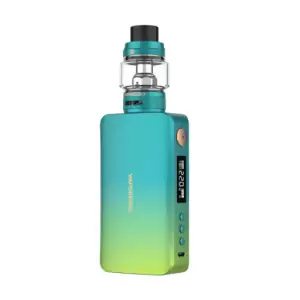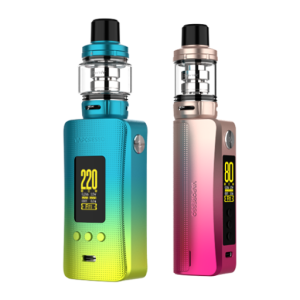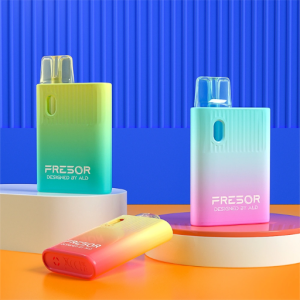Introduction: The Importance of Knowing Vaping Regulations Abroad
As disposable vapes continue to rise in popularity among both seasoned and new vapers, understanding the international landscape of vaping regulations has become crucial for travelers. The ease of use and convenience of disposable vapes make them an attractive option for those looking to enjoy vaping without the hassle of carrying additional e-liquid bottles or charger cables. However, the legal status and cultural acceptance of vaping can vary dramatically from one country to another.
Traveling with disposable vapes without a clear understanding of the destination’s laws can lead to unexpected complications, ranging from fines to confiscation of your device, and in some cases, even legal action. Thus, it’s imperative for vapers to research and comply with the local regulations of their travel destinations. This not only ensures a hassle-free journey but also respects the cultural norms and legal boundaries of the places visited.
The significance of being informed about disposable vape rules when traveling internationally cannot be overstated. Dr. Jacklyn Smith, a renowned public health expert, emphasizes, “The global landscape of vaping regulations is as diverse as it is complex. Travelers need to be well-informed about the rules governing the use of disposable vapes to navigate this landscape successfully. Ignorance is not an excuse in the eyes of the law, and understanding these regulations is key to a trouble-free travel experience.”
In the following sections, we will explore the basics of disposable vapes, delve into the specific vaping regulations across different regions, and offer practical advice for traveling vapers. This guide aims to equip you with the knowledge needed to explore the world with your vape responsibly and respectfully.

Disposable Vapes: Understanding the Basics
Disposable vapes have become a cornerstone in the world of vaping, appealing to a wide audience due to their simplicity and convenience. A disposable vape is a non-rechargeable device, designed to be used until the e-liquid runs out or the battery dies, after which it is disposed of. These devices consist of three main components: a battery, an atomizer, and a pre-filled tank with e-liquid.
The battery powers the atomizer, which heats the e-liquid to produce vapor. Unlike traditional vaping devices, disposable vapes require no maintenance or preparation, making them an ideal choice for both beginners and experienced vapers seeking a hassle-free option. The e-liquid in disposable vapes typically contains nicotine, propylene glycol (PG), vegetable glycerin (VG), and flavorings, offering a variety of flavors and nicotine strengths to cater to individual preferences.
The appeal of disposable vapes lies not only in their ease of use but also in their portability and discreetness. These characteristics make them especially popular among travelers who wish to vape without carrying additional accessories or bottles of e-liquid. However, the environmental impact of disposable vapes has raised concerns, prompting a discussion about the need for proper disposal and recycling options.
According to Dr. Mia Rodriguez, an environmental scientist, “While disposable vapes offer convenience, it’s important to consider their environmental footprint. Proper disposal and recycling of these devices are crucial to minimize their impact on the environment.” Vapers are encouraged to seek out recycling programs for disposable vapes to contribute to environmental sustainability.
Understanding the basics of disposable vapes—from their components and functionality to their environmental considerations—is essential for anyone looking to use these devices responsibly. Whether you’re a seasoned vaper or new to the scene, being informed about the product you’re using is the first step towards a satisfying and responsible vaping experience.
North America: A Diverse Landscape of Vaping Laws
The North American continent presents a mosaic of vaping regulations, reflecting the diverse attitudes and health policies towards disposable vapes in the United States, Canada, and Mexico. Each country has its own set of rules that govern the sale, use, and marketing of vaping products, including disposable vapes, making it essential for travelers to familiarize themselves with these laws before embarking on their journey.
United States
In the United States, the Food and Drug Administration (FDA) regulates disposable vapes under the tobacco product category. The legal age to purchase vaping products is 21 across all states. However, several cities and states have imposed additional restrictions, including flavor bans and stricter marketing regulations. Travelers should note that regulations can vary significantly from one state to another, and even between different cities within the same state.
Canada
Canada’s approach to disposable vapes is regulated federally by the Tobacco and Vaping Products Act (TVPA), which allows the sale of vaping products to individuals over the age of 18 or 19, depending on the province. Canada has a more permissive stance on flavors and nicotine concentrations compared to some U.S. jurisdictions. Still, advertising restrictions are in place to prevent youth appeal. Provincial laws can also add layers of regulation, particularly regarding where vaping is allowed.
Mexico
Mexico represents a more restrictive environment for vapers. The country has implemented a complete ban on the sale, distribution, and importation of disposable vapes and other electronic cigarettes. This legislation is part of Mexico’s efforts to curb smoking and nicotine addiction. Travelers caught bringing vaping products into the country can face fines and confiscation of their devices.
Understanding the legal landscape of disposable vapes in North America is crucial for travelers who wish to vape during their visit. Regulations are subject to change, and staying informed through official health and government websites before travel can help ensure compliance and avoid any legal issues. As Dr. Smith advises, “Awareness and respect for local regulations are the keys to a smooth and enjoyable travel experience with your disposable vape.”
Europe: Navigating Vaping Cultures and Laws
Europe presents a patchwork of vaping regulations that reflect the continent’s diverse cultural and legal landscapes. Understanding these nuances is crucial for vapers, especially when it comes to disposable vapes, which have gained popularity due to their convenience and ease of use.
The Legal Tapestry of Europe
Europe’s approach to vaping laws varies significantly from country to country. While some nations have embraced disposable vapes with relatively open arms, others have imposed strict regulations or outright bans. For instance, the UK has been relatively supportive of vaping as a less harmful alternative to smoking, offering vapers a degree of freedom unseen in other countries. Conversely, countries like Norway and Belgium have stricter regulations, limiting the sale and consumption of vaping products, including disposable vapes.
Cultural Acceptance and Public Perception
In addition to legal restrictions, cultural attitudes towards vaping play a pivotal role in shaping the vaping experience in Europe. In countries with a more permissive stance, such as the UK and France, public perception is generally more accepting, and vapers might find it easier to use their devices in public spaces. However, in nations where the public is more skeptical about vaping, users might encounter social stigmatization or stricter enforcement of vaping laws in public areas.
Travel Tips for Vapers
For travelers looking to explore Europe with their disposable vapes, doing thorough research before embarking on their journey is advisable. Understanding not just the legal framework but also the social etiquette surrounding vaping can enhance the travel experience and prevent any unwelcome surprises. It’s also wise to carry a clear understanding of the specific regulations regarding vape device types, nicotine strengths, and where vaping is permitted, especially in public spaces.
Expert Insights
Health and legal experts across Europe continue to debate the impact of vaping, including disposable vapes. Dr. Angela Smith, a public health expert based in London, emphasizes the importance of staying informed: “Vapers travelling across Europe should be mindful of the local laws and cultural attitudes. While vaping is seen as a safer alternative to smoking, respecting local regulations and norms is crucial for a hassle-free experience.”
In conclusion, navigating the vaping culture and laws in Europe requires a blend of legal knowledge and cultural sensitivity. By staying informed and respectful, vapers can enjoy their disposable vapes while exploring the rich diversity of Europe.
Asia-Pacific: The Spectrum of Vaping Acceptance
The Asia-Pacific region showcases a wide spectrum of acceptance and regulation concerning disposable vapes, offering a unique challenge for travelers. From strict bans to welcoming environments, understanding the diverse legal landscape is essential for anyone planning to bring their vaping devices on their travels across this vast region.
Strict Regulations and Bans
In some countries, the stance on vaping is stringent, with comprehensive bans that include the sale, importation, and use of disposable vapes. For instance, Singapore enforces a total ban on e-cigarettes, treating possession as a punishable offense. Similarly, Thailand prohibits the sale and possession of vaping products, with strict penalties for those caught violating the law.
Countries with Regulated Acceptance
Conversely, nations like Japan and South Korea present a more regulated approach to vaping. Japan allows the use of disposable vapes but maintains strict control over the sale and distribution of nicotine-containing products. South Korea permits vaping but has implemented regulations concerning the use, sale, and advertising of disposable vapes, including taxation similar to traditional tobacco products.
Navigating the Legalities
For travelers, navigating these regulations requires diligent research and preparation. Checking the latest laws and guidelines from reliable sources before departure is critical. It’s also advisable to consider the cultural attitudes towards vaping in each country, as social acceptance can vary significantly, even within regions where vaping is legally permitted.
Tips for Travelers
Research Before You Go: Prioritize understanding both the legal stance and social etiquette of vaping in your destination.
Respect Local Laws: Always comply with the country’s regulations on disposable vapes to avoid legal troubles.
Consider Social Norms: Be mindful of local attitudes towards vaping and adapt your behavior accordingly to respect cultural norms.
Expert Commentary
Travel and health experts emphasize the importance of preparation and cultural sensitivity when traveling with disposable vapes in the Asia-Pacific region. Dr. Mei Lin, a public health researcher specializing in tobacco control in Asia, advises, “Understanding the diverse landscape of vaping regulations in the Asia-Pacific is crucial for travelers. Respecting these laws and the cultural context not only ensures a smoother journey but also promotes positive interactions between tourists and locals.”
In summary, the Asia-Pacific region’s approach to disposable vapes varies widely, presenting a complex matrix of legal and cultural considerations. By staying informed and respectful, travelers can navigate these differences successfully, ensuring their vaping practices align with local expectations and regulations.
Middle East and Africa: Understanding the Regulatory Environment
The regulatory landscape for disposable vapes in the Middle East and Africa is as varied as the cultures and traditions that define these regions. Vaping laws can range from relatively liberal to extremely restrictive, making it essential for travelers to acquaint themselves with local regulations and societal attitudes towards vaping.
Middle East: A Mosaic of Regulations
In the Middle East, the stance on disposable vapes varies significantly from one country to another. For instance, the United Arab Emirates recently relaxed its regulations, allowing the sale of vaping products, including disposable vapes, under specific guidelines. Conversely, countries like Qatar maintain strict bans on the sale and use of vaping products, reflecting a conservative approach to tobacco alternatives.
Travelers to the Middle East should not only research the legal status of disposable vapes but also consider the cultural and religious context that may influence public perception and acceptance of vaping. Being discreet and seeking permission before vaping in public spaces can help navigate social norms and respect local customs.
Africa: Diverse Perspectives on Vaping
Africa presents a diverse picture, with countries adopting various stances on vaping. South Africa, for example, regulates disposable vapes under its tobacco control laws, permitting their use but with restrictions similar to smoking in public places. Meanwhile, other nations may lack clear regulations, leading to ambiguity about the legality and acceptance of vaping.
Given the vast differences in regulatory approaches across Africa, travelers should prioritize understanding the specific laws of their destination. It’s also advisable to exercise caution and discretion when vaping, especially in regions where the legal framework may be unclear or in flux.
Practical Advice for Travelers
Research Local Laws: Before traveling, thoroughly investigate the vaping regulations of your destination country within the Middle East or Africa.
Cultural Sensitivity: Be mindful of local customs and religious practices that might influence attitudes towards vaping.
Discretion is Key: In countries with strict regulations or where vaping might be socially frowned upon, it’s wise to vape discreetly and in private.
Expert Insight
Dr. Amina Patel, an expert in international health policy, emphasizes the importance of cultural sensitivity and legal awareness: “Travelers carrying disposable vapes into the Middle East and Africa must navigate a complex interplay of laws and cultural norms. Understanding and respecting these nuances is crucial for a respectful and trouble-free visit.”
In conclusion, the regulatory and cultural landscape regarding disposable vapes in the Middle East and Africa demands careful consideration by travelers. By staying informed and approaching vaping with discretion and respect for local norms, visitors can ensure their vaping habits align with the expectations and regulations of their host countries.
The Future of Vaping Regulations: Trends and Predictions
The landscape of vaping regulations, especially concerning disposable vapes, is in constant flux. As nations around the world grapple with the health implications, societal impact, and regulatory challenges posed by vaping, future trends point towards more comprehensive and uniform policies. Understanding these potential shifts is crucial for both consumers and policymakers.
Emerging Global Consensus
There is a growing movement towards establishing a global consensus on the regulation of disposable vapes. Organizations like the World Health Organization (WHO) are increasingly advocating for stringent regulations to mitigate health risks associated with vaping. This could lead to the adoption of more uniform policies across countries, affecting the manufacture, sale, and use of disposable vapes.
Technological Advances and Regulation
Innovation in vaping technology continues to outpace regulation, presenting both opportunities and challenges. Future regulatory frameworks are likely to focus on enhancing product safety through standards for disposable vape components, including batteries and e-liquid formulations. This focus aims to protect consumers while allowing for the responsible development of vaping technologies.
Health Research Driving Policy
Ongoing research into the long-term health effects of vaping is set to play a pivotal role in shaping future regulations. As evidence mounts, policies may become more restrictive, particularly if vaping is linked to significant health risks. However, if research identifies ways to mitigate these risks, regulations could evolve to accommodate safer vaping practices.
Predictions for Global Vaping Etiquette
The social norms and etiquette surrounding vaping, including the use of disposable vapes, are also expected to evolve. As public awareness of vaping’s health implications increases, vaping in public spaces may become less socially acceptable, mirroring the trajectory of traditional smoking. This shift could lead to more designated vaping areas and restrictions on vaping in public venues.
Expert Commentary
Dr. Lisa Nguyen, a public health expert, emphasizes the importance of adaptive regulation: “The future of vaping regulation needs to balance innovation with public health. As we learn more about the implications of disposable vapes, policies must adapt to ensure they effectively protect public health while accommodating technological advancements.”
In summary, the future of vaping regulations is poised for significant evolution, driven by technological innovation, health research, and international collaboration. For consumers and stakeholders in the vaping industry, staying informed and engaged with these changes will be essential. As the global community seeks to navigate the complexities of vaping, the goal remains clear: to establish a regulatory environment that safeguards public health while respecting individual choice and industry innovation.

FAQs: Common Questions About Disposable Vapes
In the ever-evolving world of vaping, particularly with the rise in popularity of disposable vapes, several questions frequently arise. These questions span from the basic functionality of disposable vapes to their legal status around the globe. Here, we address some of the most common inquiries, providing clarity and insight into the world of disposable vaping.
What Are Disposable Vapes?
Disposable vapes are non-rechargeable, all-in-one vaping devices designed for convenience and ease of use. They come pre-filled with e-liquid and are ready to use right out of the package, eliminating the need for refilling or recharging. Once the e-liquid is depleted or the battery dies, the entire unit is disposed of.
How Long Do Disposable Vapes Last?
The lifespan of a disposable vape can vary depending on the brand, model, and user habits. Generally, these devices are designed to last until the pre-filled e-liquid is used up, typically offering between 200 to 1500 puffs.
Are Disposable Vapes Legal Everywhere?
The legality of disposable vapes varies significantly from one country to another and even between regions within countries. Some places have embraced vaping as a less harmful alternative to smoking, while others have imposed strict bans or regulations. It’s crucial to check the local laws of your destination before traveling with a disposable vape.
Can I Take Disposable Vapes on a Plane?
Most airlines allow disposable vapes in carry-on luggage but prohibit their use and charging aboard the aircraft. It’s essential to check with the specific airline and comply with any regulations regarding the transportation of lithium batteries and e-liquids.
Why Are Disposable Vapes Popular?
Disposable vapes have gained popularity due to their convenience, variety of flavors, and ease of use. They appeal to both former smokers looking for a less harmful alternative and new users attracted to the simplicity and discreetness of the devices.
Are Disposable Vapes Recyclable?
Recycling disposable vapes can be challenging due to their combination of plastic, metal, and electronic components. Some manufacturers and communities offer recycling programs, but it’s important to dispose of these devices responsibly to minimize environmental impact.
How Can I Find Out If Disposable Vapes Are Allowed in My Destination?
To determine the legal status of disposable vapes in your travel destination, it’s advisable to consult official government websites or contact local authorities. Additionally, online forums and travel guides can offer insights into current regulations and social norms related to vaping.






